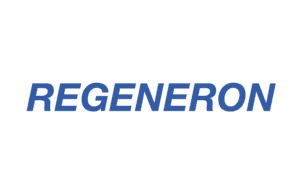 Regeneron (NSDQ:REGN) has announced that the FDA has signed off on a 1,200 mg subcutaneous or intravenous dose of its REGEN-COV antibody cocktail. The quantity is half of the initially authorized dose. The agency had previously authorized a 2,400 mg dose of the vaccine, including a combined dose of 1,200 mg of Casirivimab and 1,200 mg of Imdevimab.
Regeneron (NSDQ:REGN) has announced that the FDA has signed off on a 1,200 mg subcutaneous or intravenous dose of its REGEN-COV antibody cocktail. The quantity is half of the initially authorized dose. The agency had previously authorized a 2,400 mg dose of the vaccine, including a combined dose of 1,200 mg of Casirivimab and 1,200 mg of Imdevimab.
The initial EUA for REGEN-COV did not include the option for a subcutaneous dose of the antibody cocktail. The option to make the product available via injection makes it easier for doctors or nurses to administer. The use of SARS-CoV-2 monoclonal antibodies has lagged behind vaccines, with only a fraction of eligible patients receiving such antibodies in the past year.
FDA came to its decision after reviewing data from a pivotal Phase 3 study that showed that the drug reduced the risk of hospitalization or death by 70%. The efficacy of the reduced dose is similar to the 2,400 mg dose.
REGEN-COV appears to be more effective against SARS-CoV-2 variants of concern. In eight states, FDA recommended a pause of distribution of the bamlanivimab-etesevimab antibody cocktail from Eli Lilly over variant concerns. The agency continues to recommend REGEN-COV in all 50 states.
“Despite increased use of vaccines, thousands of patients are still becoming infected in the U.S. every day, with many at high risk of serious complications from COVID-19,” said Dr. George D. Yancopoulos, president and chief scientific officer at Regeneron, in a statement. “Unfortunately, to date, only a fraction of patients eligible for antibody treatments have received them, which we hope will change based on this updated FDA authorization.”
In a Phase 3 trial, the lower dose resulted in a slightly lower adverse event rate. Some 1.1% of participants who received a 1,200 mg dose had serious adverse reactions compared to 1.3% who received a 2,400 mg dose. Serious adverse events, however, were higher in the placebo group, affecting 4.0% of that arm.
Preliminary clinical trial results also support the use of the REGEN-COV antibody cocktail as a means of providing passive immunity for patients who respond poorly to vaccines.
Regeneron aims to file paperwork for full FDA approval for non-hospitalized patients in the coming months.
REGEN-COV grew out of Regeneron’s research on antibody cocktails for Ebola.
Regeneron shares ticked up about 1% in afternoon trading today, while rival Lilly’s stock dipped by about half a percentage point.
Benchmark analyst Aydin Huseynov projected last week that an FDA decision to allow the 1,200 mg dose could lead to Regeneron’s stock to increase between 5% and 10%.
Filed Under: clinical trials, Drug Discovery, Drug Discovery and Development, Infectious Disease



